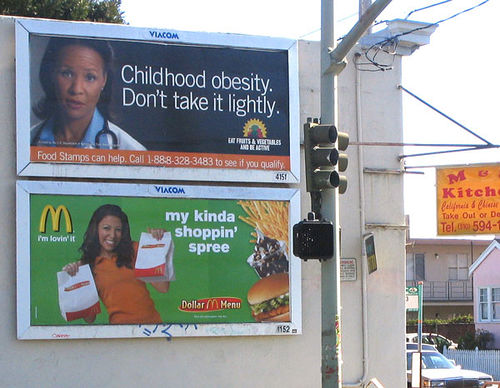
Interesting article in a Whistler regional newsmagazine:
Olympic advertisers will be out in full force during the 2010 Winter Olympics, delivering their messages to a captive audience in Vancouver. But not so in Whistler.
Corporations like McDonald's, Visa and Coca-Cola hoping to reach mass consumer markets as hundreds of thousands of spectators travel to and from Olympic and Paralympic events won't have much opportunity to advertise in Whistler.
And it's not as though they don't want to.
Advertising opportunities for Olympic sponsors, said organizers, would likely be well received in Whistler.
Unlike the city, however, the resort municipality prohibits billboards, video signs and building wraps in its boundaries and it isn't keen on extensive transit advertising either.
Though B.C. Transit has confirmed that Olympic organizers retain the rights for advertising on the outside of the buses, as yet there are no plans to do so in respect of Whistler's current practices.
"We are deferring to the RMOW and simply complying to existing community standards," said Bill Cooper, director of commercial rights for the Vancouver Organizing Committee for the 2010 Games (VANOC).
It will make for a much different Olympic experience here compared to the city.
With Olympic advertising revenues expected to double those of previous games, it's almost refreshing to see a community like Whistler stick to its principles.
And this is coming from an Ottawa adman who bemoans his city's lack of outdoor advertising opportunities.
What do you think: are they anti-corporate heroes, or crazy hippies?









